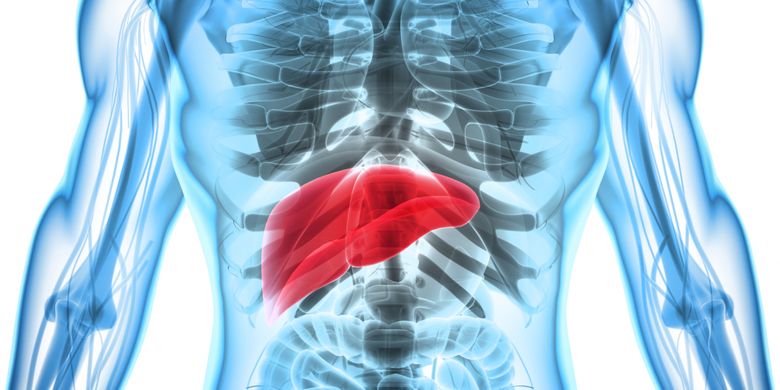KOMPAS.com – Disorders of the liver or liver can cause serious health problems.
Launch Healthline, liver or plural known as liver is vital organs that function to digest food, process energy for the body, to filter out toxic substances from the blood.
With this vital role, the liver is inevitably the hardest working organ in the human body.
Also read: Often Not Realized, Recognize Early Symptoms of Liver Disease
Symptoms of liver disease can vary, depending on the cause and type of disease.
Here are some signs liver disease commonly felt by the sufferer:
- Yellow skin and eyes
- Dark urine
- Stool (BAB) is pale, bloody, or black in color
- Swollen ankles, legs, or abdomen
- Nausea and vomiting
- Decreased appetite
- Often tired
- Itchy skin for no apparent reason
- Often bruises
As time goes by, liver disease if not handled properly can cause the growth of scar tissue (cirrhosis in the liver).
This condition can lead to liver failure to life-threatening.
For that, it is important for everyone to know the symptoms and causes of liver disease.
That way, a person can be more alert and prevent this disease in the future.
Also read: Is Hepatitis Contagious?
Liver disease can be caused by parasitic and viral infections in the liver.
Viruses that damage the liver can be transmitted through blood, semen, contaminated food, water, or close contact with infected sufferers.
Types of infections that affect the liver or liver and are quite common include hepatitis A, B, C.
- Immune system disorders
Diseases that attack the immune system (autoimmune) can also cause liver disease.
Examples of liver disease due to immune disorders include autoimmune hepatitis, primary biliary cholangitis, and primary sclerotic cholangitis.
Also read: Hepatitis A: Symptoms, Transmission, How to Cure
Liver disease can be caused by genetics or heredity.
An abnormal gene that is passed on from parents can cause certain substances to build up and damage the liver.
Several types of hereditary liver disease include hemochromatosis, Wilson’s disease, and alpha-1 antitrypsin deficiency.
Several types of cancer such as liver cancer, bile duct cancer, and liver adenoma can cause liver problems.
Liver disease can also be caused by exposure to certain substances in the body, including:
- Drink excessive alcohol
- Accumulation of fat in the liver
- Take medication not according to the recommended dosage
- Consume certain herbal drinks
Some of the causes of liver disease above can be prevented. However, liver disease that is genetic or hereditary cannot be prevented.
Also read: Recognize Different Ways of Hepatitis B Transmission
Risk factors for liver disease
 Alcoholic drink illustration.-Some unhealthy lifestyles are prone to increasing a person’s chances of suffering from liver disease.
Alcoholic drink illustration.-Some unhealthy lifestyles are prone to increasing a person’s chances of suffering from liver disease.
Some risk factors for liver disease, including:
- The habit of drinking excessive alcohol
- Obesity
- Type 2 diabetes
- Non-sterile tattoos or piercings
- Use of non-sterile needles
- Exposure to blood or body fluids of the sufferer
- Sex without a condom
- Being exposed to certain chemicals or toxins
- Come from a family suffering from liver disease
In order to maintain the health of the liver, it is better if you prevent several risk factors for liver disease that can be controlled above.
– .


